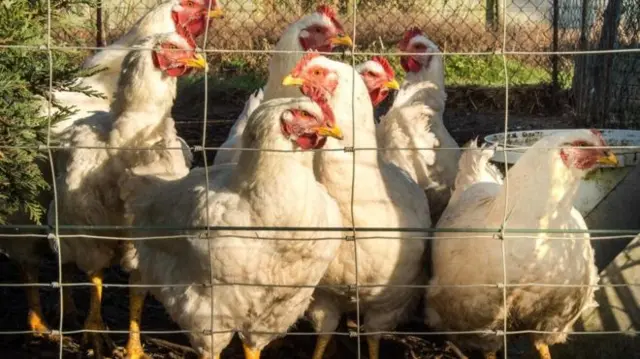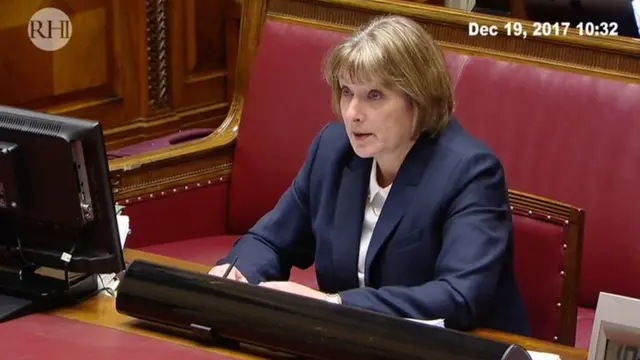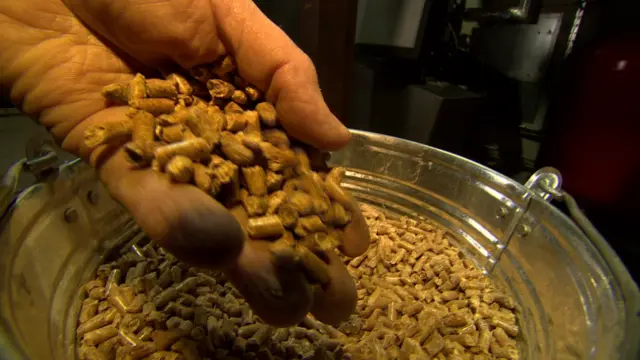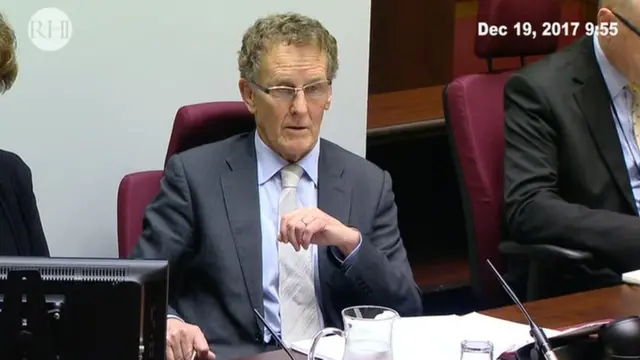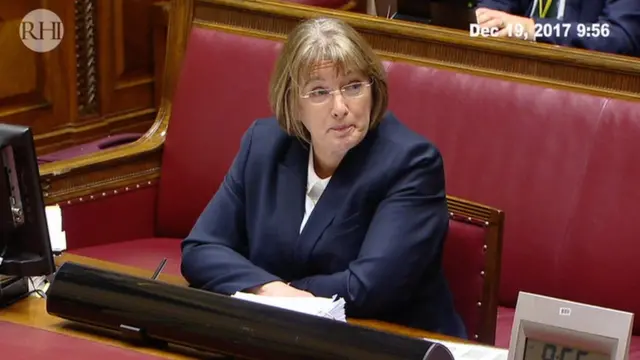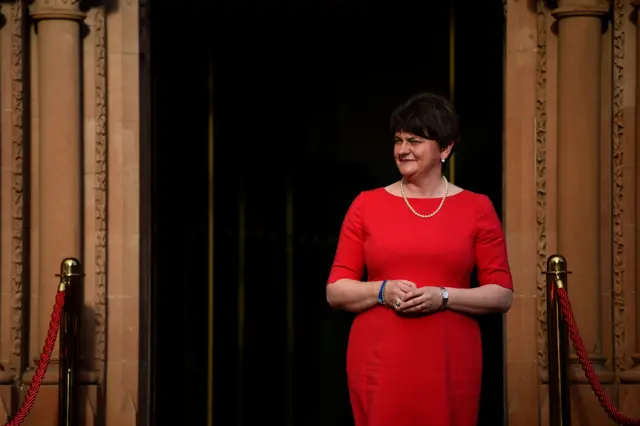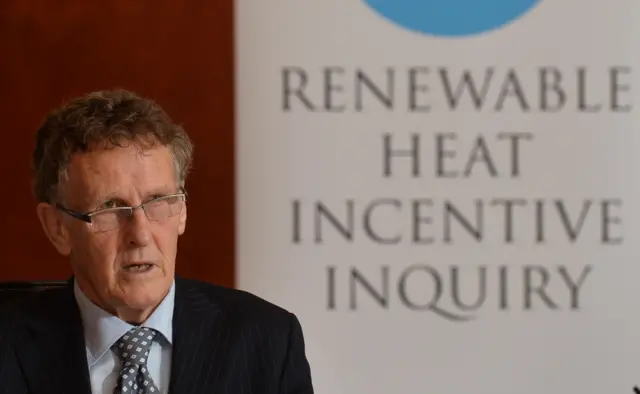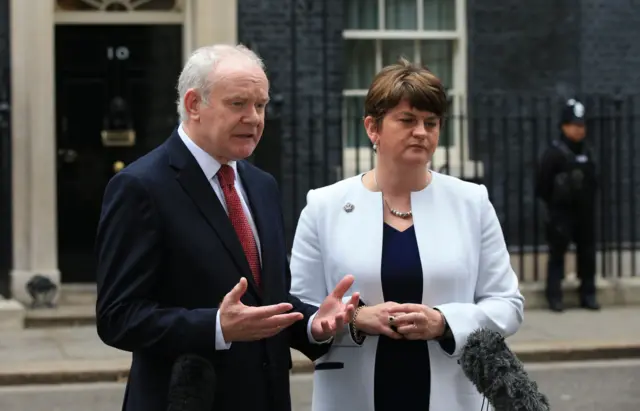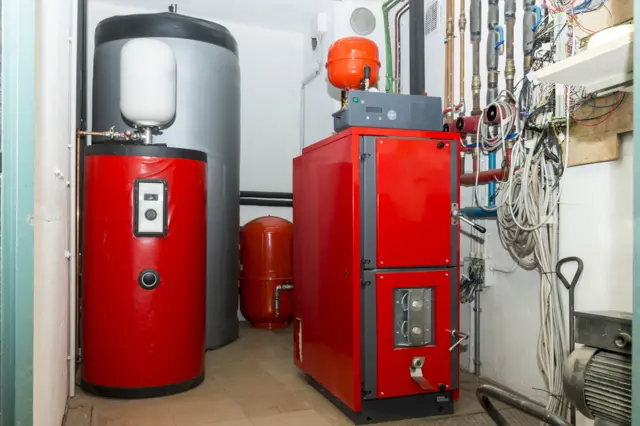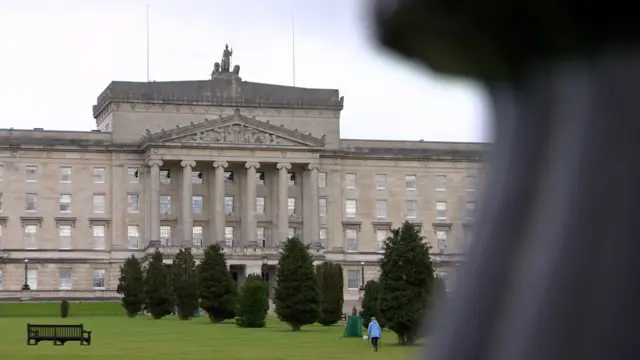'Emergency stop for scheme would've take months'published at 12:21 GMT 19 December 2017
A so-called emergency stop measure that was suggested for the RHI scheme if it was in danger of going overbudget would've taken "a number of months" to take effect.
It was outlined to the casework committee that the RHI scheme could be closed to new applicants if "budgets risked being overspent", according to the minutes from the meeting.
 Image source, Getty Images
Image source, Getty ImagesBut that power wasn't in place from the outset.
Ms Hepper explains that would've required a change to the scheme's original regulations, and the lengthy process to do that would've involved a public consultation as well as scrutiny by Stormont's Enterprise Committee.

